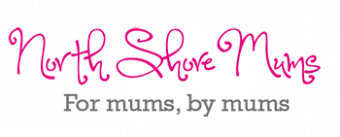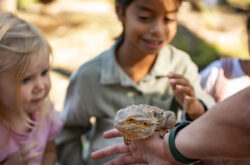The experience of watching your young child learn and grow is one most mums treasure. But now there’s more reason than ever to make sure you’re paying attention in those vital early years. New research has shown that what we do with our children when they’re aged 3 – 5 years plays a vital part in their development. Mimi Fong explains more.
 It’s something mums have understood for years- and now a new article has confirmed that mothers impact the growth of brain structures in their children from early in life, in particular their learning, memory and stress responses. New research revealed that there was ‘a sharper rise in the volume of the hippocampus (the part of the brain thats critical for learning, memory and regulating emotions) in children whose mothers supported and nurtured them as pre-schoolers’.
It’s something mums have understood for years- and now a new article has confirmed that mothers impact the growth of brain structures in their children from early in life, in particular their learning, memory and stress responses. New research revealed that there was ‘a sharper rise in the volume of the hippocampus (the part of the brain thats critical for learning, memory and regulating emotions) in children whose mothers supported and nurtured them as pre-schoolers’.
The researchers also discovered that even if the mothers who were less nurturing in the preschool years became more supportive as their children got older, the hippocampus in these adolescents ‘still appeared smaller.’ What this means is that what we do with our children in their early years- between 3 and 5 years- plays a vital part in their development.
The early years and values
In NLP (Neuro-Linguistic Programming), we learn about Values. Values refer to what’s important to you in different areas. For example, Love might be one of your values in the context of your relationships, whereas Flexibility might be a value in the context of your career. Our Values start forming from birth.
From birth to to age 7 is what we call the Imprint Period, where we absorb everything around us from our primary caretakers, in most cases our parents. Within this period, between the ages of 2 and 4 (as the research suggests), we absorb information without any filters, like a sponge. This means Values that children form at this young age lay the foundation for the beliefs they adopt for life (what is right or wrong, good and bad) and the beliefs are directly influenced by their parents.
How can mums role model good behaviours?
As mums, we play a pivotal role in both the physical and emotional development of our child during the critical early years. But I’m not saying we should all strive to be perfect mothers, because there’s no such thing! And this is not about feeling guilty about those moments when you may have behaved in a way that you perhaps wished you hadn’t. In fact, it’s the exact opposite- we want to STOP you going down the path of guilt. Instead, it’s important to realise, to be the best we can be, we need to take care of ourselves first. Put YOUR oxygen mask on first. And keep it on! Because when you take care of yourself first, it’s a WIN-WIN for everyone! When we are happy and well, we are at our best and can do more for our loved ones. And when we don’t look after ourselves first, everyone suffers (‘the ripple effect’).
So the next time you’re running around frazzled, feeling stretched to the max, or you want to take time out for yourself and reject the thought because you feel guilty, then remember and ask yourself this question: ‘What example am I setting for my child? What values am I instilling in them about how to take care of themselves?
If you would like to learn simple and practical techniques that you can apply right now to help you take better care of yourself, I am giving away a FREE copy of The Thriving Woman’s Blueprint™: The 7 Step Process To Take You From Surviving To Thriving. Click HERE for instant access.
Do you struggle to put yourself first? Tell us in the comments below!
More on mothering and family life:




